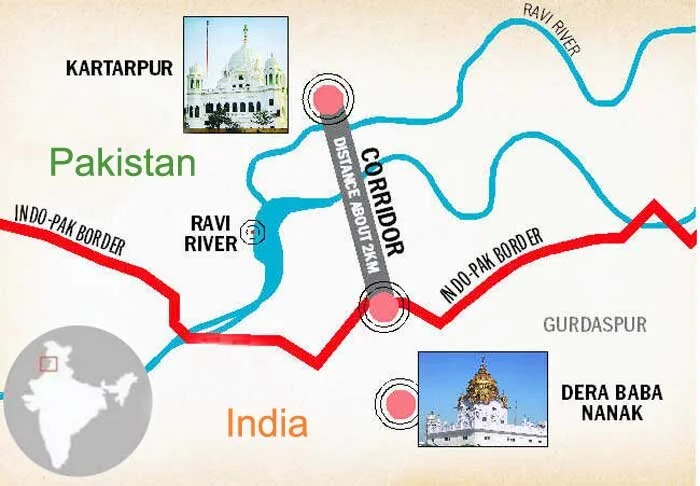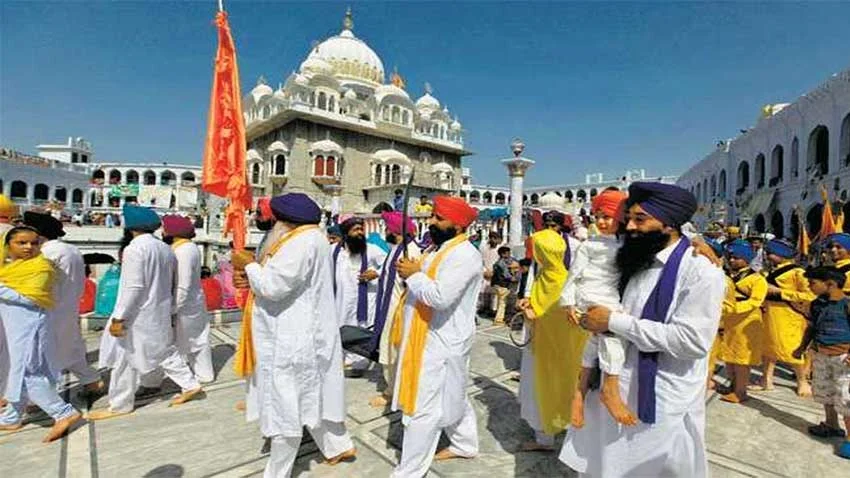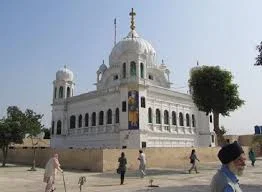In a world often divided by borders and beliefs, the Kartarpur Corridor stands as a shining example of peace, spirituality, and cross-border harmony. Located in the Narowal district of Punjab, Pakistan, this sacred route connects Gurdwara Darbar Sahib Kartarpur—the final resting place of Guru Nanak Dev Ji, the founder of Sikhism—to the Indian border. It’s more than just a passage; it’s a spiritual bridge that unites people across nations, cultures, and faiths.
The Historical and Spiritual Significance
The Kartarpur Corridor leads to Gurdwara Darbar Sahib, one of the holiest sites in Sikhism. It was here that Guru Nanak spent the last 18 years of his life preaching peace, love, and equality. This site is not just a religious landmark—it’s a symbol of unity and tolerance. For decades, Indian Sikhs could only view the gurdwara through binoculars from across the border. But today, the corridor allows thousands to walk the same land where their spiritual leader once lived.
Bridging the Gap Between Two Nations
The opening of the Kartarpur Corridor on 9 November 2019 was a monumental step toward peace between Pakistan and India. Despite ongoing political tensions, the governments of both countries came together to create a visa-free corridor that allows Indian Sikh pilgrims to visit the holy site without a visa—just a simple permit.

This initiative is a powerful message: when it comes to matters of faith and humanity, borders can be softened. Every pilgrim who crosses the corridor is part of a living testimony to peacebuilding and mutual respect.
Pakistan’s Efforts in Facilitating Sikh Pilgrims
The Government of Pakistan has taken many thoughtful steps to accommodate Sikh visitors. From building modern infrastructure at the corridor to ensuring high security and easy immigration processes, everything has been designed to provide comfort and dignity to the pilgrims.
Some of the key initiatives include:
- Visa-free access for Indian Sikh pilgrims, allowing up to 5,000 visitors per day.
- A fully equipped Immigration Terminal at the border.
- Provision of electric buggies, rest areas, free meals (langar), and multilingual guides.
- Security and emergency medical services available around the clock.
- Preservation of the historic and religious integrity of the gurdwara and its surroundings.
These steps reflect Pakistan’s commitment to religious inclusivity and hospitality.
Kartarpur Corridor: A Symbol of Pakistan’s Soft Image
The Kartarpur Corridor reflects Pakistan’s vision as a country that respects all faiths and protects religious heritage. The initiative sends a message to the world: Pakistan is not only the home of Islamic landmarks but also a proud preserver of religious diversity.
From Buddhist monasteries in Taxila to Hindu temples in Sindh, from Sufi shrines in Punjab to Sikh gurdwaras across the country, Pakistan is a land of spiritual significance for many. The corridor showcases this soft image, allowing global visitors to see Pakistan not as portrayed in media stereotypes, but as a hospitable and respectful nation.
Festivals and Celebrations at Kartarpur
The Kartarpur Corridor becomes even more vibrant during Sikh religious festivals. The most significant one is the birth anniversary of Guru Nanak Dev Ji, known as Guru Nanak Gurpurab, celebrated in November each year. During this time:
- Thousands of Sikhs from India, Pakistan, and around the world visit Kartarpur.
- Prayers, kirtan (devotional singing), langar (community meals), and religious gatherings are held.
- The gurdwara is beautifully lit and decorated to honor the founder of Sikhism.

Other important occasions include Vaisakhi, which marks the founding of the Khalsa in 1699, and Baisakhi Mela, celebrated with great enthusiasm by Sikh communities in Pakistan and India.
These celebrations are not only religious events but also expressions of cultural identity and community bonding. They offer non-Sikh visitors a glimpse into the rich spiritual traditions of Sikhism, right here in Pakistan.
Sikh Community in Pakistan
The Sikh community living in Pakistan—though small in number—is an integral part of the nation’s multicultural fabric. They live mostly in Punjab and Khyber Pakhtunkhwa, actively contributing to society while freely practicing their religion.
Pakistan’s constitution guarantees religious freedom, and Sikhs in Pakistan enjoy the right to run their own gurdwaras, schools, and cultural centers. The Evacuee Trust Property Board (ETPB) oversees the maintenance of Sikh religious sites, ensuring they remain preserved and respected.
By honoring the needs and traditions of its Sikh citizens and visitors, Pakistan demonstrates its dedication to religious harmony.
International Recognition
The launch of the Kartarpur Corridor gained international praise. Sikh organizations and world leaders applauded the effort. Even the UN Secretary-General, António Guterres, during his visit to Pakistan, described Kartarpur as a “corridor of hope.”
This initiative has also promoted religious tourism in Pakistan. It has opened doors not just for pilgrims but also for scholars, spiritual seekers, and travelers who wish to explore the roots of South Asia’s diverse religious heritage.
A Peaceful Path Forward
While borders remain, the Kartarpur Corridor is proof that peaceful initiatives can coexist with political differences. It is a rare example in today’s world where compassion triumphed over conflict. With every pilgrim that walks the corridor, the bonds between two nations and their people are strengthened.
This initiative is not only a success story in diplomacy but also a reminder that faith has the power to unite what politics divides.
Final Thoughts
The Kartarpur Corridor is more than a religious passage—it is a spiritual experience, a diplomatic success, and a symbol of hope. For Sikhs, it fulfills a long-held dream. For Pakistan, it’s a chance to present itself as a land that respects all religions, hosts all communities, and values the power of human connection.
If you’re looking to explore Islamic religious sites in Pakistan or dive into the rich spiritual landscapes of other faiths, your journey should begin with the soulful serenity of Kartarpur Corridor.
Let Kartarpur be a reminder that no wall is too high when built on faith, and no journey is too long when taken in peace.


